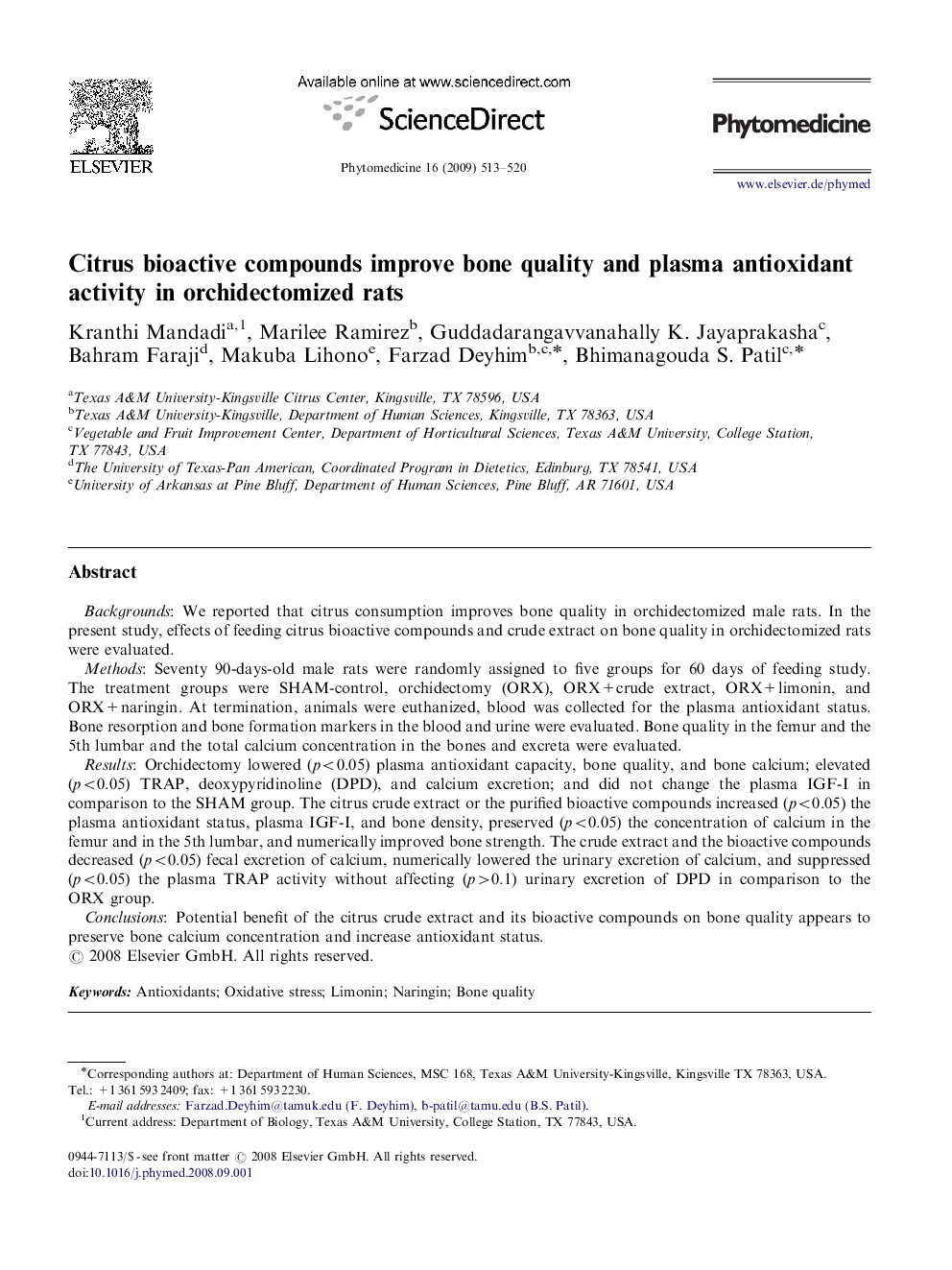| Article ID | Journal | Published Year | Pages | File Type |
|---|---|---|---|---|
| 2497274 | Phytomedicine | 2009 | 8 Pages |
BackgroundsWe reported that citrus consumption improves bone quality in orchidectomized male rats. In the present study, effects of feeding citrus bioactive compounds and crude extract on bone quality in orchidectomized rats were evaluated.MethodsSeventy 90-days-old male rats were randomly assigned to five groups for 60 days of feeding study. The treatment groups were SHAM-control, orchidectomy (ORX), ORX+crude extract, ORX+limonin, and ORX+naringin. At termination, animals were euthanized, blood was collected for the plasma antioxidant status. Bone resorption and bone formation markers in the blood and urine were evaluated. Bone quality in the femur and the 5th lumbar and the total calcium concentration in the bones and excreta were evaluated.ResultsOrchidectomy lowered (p<0.05) plasma antioxidant capacity, bone quality, and bone calcium; elevated (p<0.05) TRAP, deoxypyridinoline (DPD), and calcium excretion; and did not change the plasma IGF-I in comparison to the SHAM group. The citrus crude extract or the purified bioactive compounds increased (p<0.05) the plasma antioxidant status, plasma IGF-I, and bone density, preserved (p<0.05) the concentration of calcium in the femur and in the 5th lumbar, and numerically improved bone strength. The crude extract and the bioactive compounds decreased (p<0.05) fecal excretion of calcium, numerically lowered the urinary excretion of calcium, and suppressed (p<0.05) the plasma TRAP activity without affecting (p>0.1) urinary excretion of DPD in comparison to the ORX group.ConclusionsPotential benefit of the citrus crude extract and its bioactive compounds on bone quality appears to preserve bone calcium concentration and increase antioxidant status.
